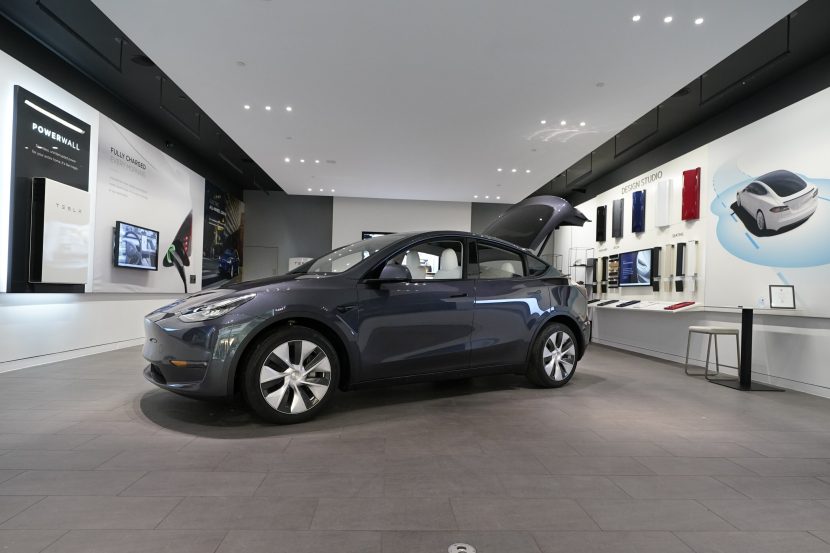DETROIT (AP) — The dependability of electric vehicles and plug-in hybrids has significantly enhanced, reducing a considerable disparity with gasoline-powered cars, as indicated by the recent survey from Consumer Reports. However, vehicles using internal combustion engines and gas-electric hybrids remain considerably more reliable, the survey indicated. Subscribers to Consumer Reports, who participated in surveys throughout […]


DETROIT (AP) — The dependability of electric vehicles and plug-in hybrids has significantly enhanced, reducing a considerable disparity with gasoline-powered cars, as indicated by the recent survey from Consumer Reports.
However, vehicles using internal combustion engines and gas-electric hybrids remain considerably more reliable, the survey indicated.
Subscribers to Consumer Reports, who participated in surveys throughout most of 2024, reported that electric vehicles experienced 42% more issues than gasoline cars on average. This represents an improvement from the 79% more problems reported in the 2023 survey. The survey released on Thursday assessed the reliability of vehicles primarily from the 2022, 2023, and 2024 model years.
Plug-in hybrids, which use battery power for a limited distance before a hybrid system takes over, had 70% more issues compared to gas cars, although this is less than half the disparity noted in last year’s survey.
The cause of this improvement? According to Jake Fisher, head of Consumer Reports’ auto test center, it is the maturing technology of EVs and plug-ins.
“As automakers gain more expertise with the new technologies and platforms, enhancements will follow,” Fisher stated.
He anticipates that electric and plug-in vehicles will continue to improve, further bridging the gap with gas-powered automobiles. However, one obstacle may be present: Automakers frequently pilot new automation features and technologies on EVs, which tend to have more bugs.
“Until we reach a point where an EV simply operates as a car that performs practical functions with its powertrain, I doubt they will completely catch up” to gasoline vehicles, Fisher noted.
This new technology might not align with the desires of the next group of EV buyers, as they shift from early adopters to more practical mainstream customers, Fisher mentioned. “Some individuals want a vehicle that is straightforward to maintain,” he expressed. “I don’t utilize gas. I don’t require this automation feature or electric door handles or whatever else they’re introducing.”
Consumer Reports has highlighted that anxiety regarding the quality of EVs and plug-ins contributes to the reluctance among consumers contemplating a shift from gasoline engines, which includes worries about higher initial costs, inadequate charging infrastructure, and prolonged charging times.
Gas-electric hybrids, which transition from internal combustion to electric power for better fuel efficiency, demonstrated reliability comparable to traditional combustion engine vehicles. Although the technology is complex, it has been honed primarily by pioneer Toyota over the last twenty-five years, according to Fisher. “CR’s evaluations have revealed that they are often quieter, faster, and more enjoyable to drive than their gasoline-only equivalents,” he stated.
As of September this year, the latest month for which data has been reported by all automakers, electric vehicle sales increased by 7.2%, plug-in sales grew by 11.6%, but hybrids topped the chart with a 32.6% rise, per Motorintelligence.com.
According to Consumer Reports, its 2024 survey of subscribers representing approximately 300,000 vehicle owners revealed that Subaru claimed the title of the most reliable brand for the first time, followed by the consistent front-runners Lexus and Toyota. The top five also included Honda and its luxury brand Acura. It marked the first occasion since 2020 that neither Toyota nor its luxury division Lexus held the top spot, Fisher noted.
The highest-rated brand from a U.S.-based manufacturer was General Motors’ Buick, ranking at No. 11.
Among the bottom five out of 22 ranked brands were the electric newcomer Rivian, followed by GM’s luxury division Cadillac, GMC, Jeep, and Volkswagen, according to Consumer Reports.
The magazine and website did not gather sufficient data this year to rank Alfa Romeo, Chrysler, Dodge, Fiat, Infiniti, Jaguar, Land Rover, Lincoln, Lucid, Maserati, Mercedes, Mitsubishi, Porsche, and Ram.
Leading electric vehicle manufacturer Tesla finished at 17th place, dropping three positions from last year’s survey.
Subaru secured the top position in the survey by adhering to the same approach Toyota employs to achieve high reliability ratings: minimal changes when updating or launching new vehicles, Fisher explained. Rather than introducing entirely new engines or transmissions, Subaru retains parts from previous generations.
“They don’t attempt to fix what isn’t broken,” he remarked. “They persist in refining their offerings, and since their products perform effectively, major alterations aren’t necessary.”
Fisher noted that Rivian, being a new entity with fresh electric models, inevitably encounters more issues. As a startup, it doesn’t yet have established powertrains from earlier generations to rely on. “It’s anticipated that you will face challenges without any earlier models to draw from,” he stated.
The survey indicated that the gasoline-powered Toyota RAV4 small SUV was the most reliable vehicle, closely followed by the Toyota Corolla compact car. The RAV4 Prime plug-in hybrid claimed the third spot, succeeded by the RAV4 gas-electric hybrid, according to Fisher.
Consumer Reports’ subscriber survey does not represent all vehicle buyers in the U.S. or the population purchasing specific types of vehicles. The survey was scheduled to be presented at a meeting of the Automotive Press Association in Detroit.














